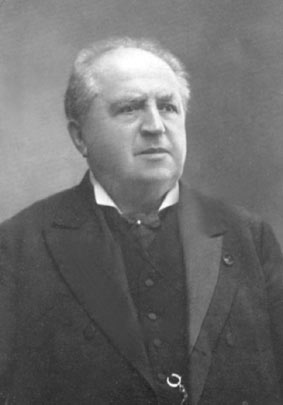I am a firm believer in the believer’s responsibility to be prepared to give an answer (apologia) to those who ask him about his hope in Christ (1 Pet. 3:15). Apologetics has become a passion for me because I believe that the Christian faith can not only withstand every assault by unbelief, but that it easily overpowers every other belief system devised by men. I also believe that apologetics is not a concern just for pastors and theologians, but also for every believer. However, we live in a day when few Christians can actually “destroy arguments and every lofty opinion that raises itself against the knowledge of God” (2 Cor. 10:5). A number of factors have contributed to this malaise: decline in theology, weak preaching and teaching, and the church’s capitulation to the culture’s obsession with entertainment and banality.
Another factor that prevents apologetics from becoming the skill of every believer is the unfortunate direction that apologetics has taken in the modern era. In an attempt to answer liberalism and skepticism on their own turf, some defenders of the faith chose to seek to defend the faith purely on rational grounds, apart from Scripture. In effect, this move severed the apologetic from its very lifeblood, and turned apologetics into a largely philosophical affair. Even today, the vast majority of evangelical apologetics is practiced from an evidential approach, seeking to match the challenges of unbelief on their own terms. This seemed to work reasonably well until postmodernism came along and undermined the whole modern project of proofs and evidence. The truth is, however, that evidential apologetics was never really all that Christian to begin with. It was more theistic, leading those who became convinced to a belief in God, or a god. At that point Scripture was trotted out like an embarrassing family secret, kept hidden until that point, since the evidentialism could go no further than bare theism. Additionally, the confidence in philosophy has placed most apologetics outside the reach of the average Christian.
 It was exactly this modern approach to apologetics that denied Scripture its central role which Abraham Kuyper rejected when he wrote that in the struggle against the anti-Christian worldview that was already dominating Europe at the dawn of the 20th century, “apologetics have advanced us not one single step. Apologetics have invariably begun by abandoning the assailed breastwork, in order to entrench themselves cowardly in a ravelin behind it” (Abraham Kuyper, Lectures on Calvinism, Grand Rapids: Eerdmans, 1931, 11).
It was exactly this modern approach to apologetics that denied Scripture its central role which Abraham Kuyper rejected when he wrote that in the struggle against the anti-Christian worldview that was already dominating Europe at the dawn of the 20th century, “apologetics have advanced us not one single step. Apologetics have invariably begun by abandoning the assailed breastwork, in order to entrench themselves cowardly in a ravelin behind it” (Abraham Kuyper, Lectures on Calvinism, Grand Rapids: Eerdmans, 1931, 11).
Kuyper, the Prime Minister of the Netherlands (1901-1905) and one of the leading intellectuals of his day, was also a pastor and educator, who founded the Free University of Amsterdam in 1880. He had a keen ability to discern the movements of culture and thought that were shaping his day. His writing is timeless, and much of what he wrote is directly applicable to the challenges we face a century later.
Writing about the mistake of trying to defend the faith according to the rules laid down by skeptics, he writes:
From the first, therefore, I have always said to myself, if the battle [against unbelief] is to be fought with honor and with a hope of victory, then principle must be arrayed against principle: then it must be felt that in Modernism the vast energy of an all-encompassing life-system assails us, then also it must be understood that we have to take our stand in a life-system of equally comprehensive and far-reaching power. And this powerful life-system is not to be invented nor formulated by ourselves, but is to be taken and applied as it presents itself in history (p. 11-12).
What Kuyper is saying here is that it will not do to seek to defend the Christian faith with the criteria of reliability laid down by philosophy and modern unbelief. Since Christianity is an all-encompassing “life-system” (Kuyper’s word for worldview) antithetical to the life-system of unbelief, it needs a principle of its own to defend itself, namely the authority of Scripture. Anything less than an epistemological starting point in the self-attested authority of Scripture was insufficient to the task. Since Kuyper did not see this happening among the apologists of his day, he decried apologetics as worthless.
In this sense, Kuyper was correct—apart from the authority of Scripture, apologetics becomes an exercise in ever-increasing obscurity through philosophy and speculative metaphysics. This severs apologetics from its power source, and puts the practice of providing an answer for one’s hope outside the reach of all but the brightest philosophers. While philosophy helps to clarify our thinking when it serves as the handmaid of theology, when it is allowed to dominate apologetics, it does more harm then good.

Mark,
Thanks for this!
Joe
Reblogged this on oogenhand and commented:
Presuppositionalism having Dutch roots!!!